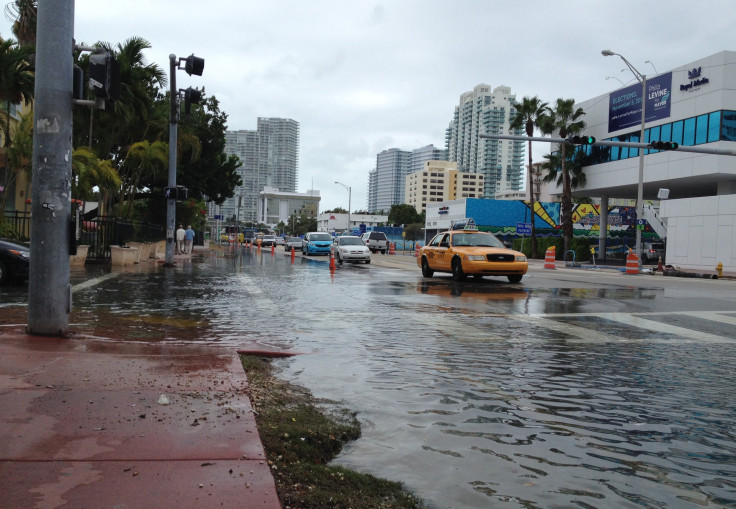Obama To Warn Of Climate Change Threat To National Security At Coast Guard Academy Graduation

President Barack Obama on Wednesday will warn of the threat that climate change poses to U.S. military readiness and infrastructure. In his commencement address at the U.S. Coast Guard Academy, the president is expected to highlight how extreme weather events could damage military installations and bases, while rising sea levels could destroy critical coast guard and naval stations in low-lying areas.
"Climate change constitutes a serious threat to global security, an immediate risk to our national security," Obama will say, according to prepared remarks released by the White House and cited by media outlets. "Make no mistake, it will impact how our military defends our country. And so we need to act -- and we need to act now.”
The Coast Guard graduates are among “the first generation of officers to being your service in a world where the effects of climate change are so clearly upon us,” Obama will say at the Wednesday ceremony in New London, Connecticut.
The speech is part of a broader strategy by the Obama administration to call the public’s attention to the threat of sea-level rise, enduring drought and frequent storms and to bolster support for the president’s environmental agenda. This spring, Obama set a target to cut America’s emissions of heat-trapping gases by up to 28 percent below 2005 levels by 2025. His proposed Clean Power Plan to slash carbon emissions from coal-fired power plants is critical to achieving that goal, though the policy is facing fierce opposition from Republicans in Congress and governors in fossil fuel-rich states.
During a trip to the Florida Everglades last month, Obama touted his administration’s initiatives and called on Congress to boost federal spending for environmental restoration projects. “In places like this, folks don’t have time ... to deny the effects of climate change. Folks are already busy dealing with it,” he said from the park’s subtropical swamps.
GOP policymakers in the U.S. House of Representatives have tried unsuccessfully in the past to block U.S. defense agencies from studying the effects of climate change or developing plans to address them. Rep. David McKinley, a Republican from coal-rich West Virginia, last year proposed two measures to limit spending that could be used to pursue what he called “a dubious climate change agenda.”
Pentagon officials and military planners have said repeatedly that they see climate change as an issue of national security. The U.S. Department of Defense has incorporated climate concerns into its strategic military policies since 2010, including assessing how drought, floods and extreme storms could affect the infrastructure and operations at its 7,600 military installations worldwide. The agency has a $7 billion program to install or buy solar and wind power at its facilities.
During his speech, Obama intends to tell graduates that “thousands of miles of highways, roads, railways and energy facilities are vulnerable” to rising sea levels and coastal flooding. "It’s estimated that a further increase in sea level of one foot — just one foot — by the end of this century could cost our nation $200 billion,” the president will say.
Commencement ceremonies at the Coast Guard Academy are scheduled to start at 11 a.m. EDT. Ahead of the event, the White House released a report on the national security implications of climate change.
© Copyright IBTimes 2024. All rights reserved.











